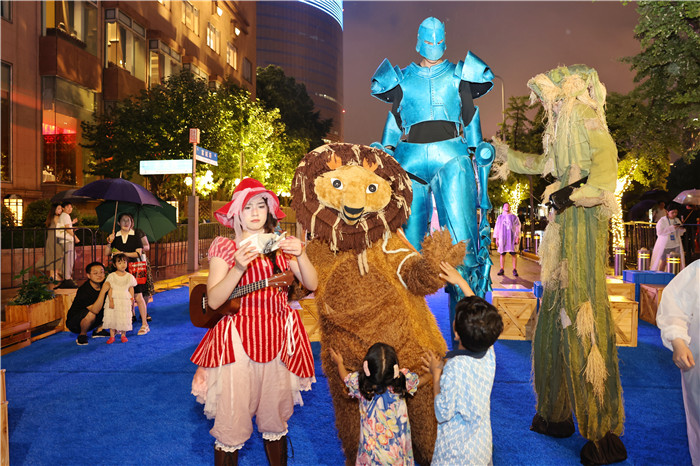Pulling together to stage a classic

The wedding of Xiangzi and his wife Huniu. [Photo provided to China Daily]
"For Xiangzi, he hoped to own his rickshaw. For today's young people, they may want to buy their own cars and apartments," Fang adds. "The rickshaw is more than just a vehicle, but Xiangzi's whole life, offering him spiritual support. I believe that many people share that feeling."
Born Shu Qingchun in Beijing, the Chinese writer Lao She is best known for his vivid descriptions of the lives of grassroots people that reflect the social realities of the time, and for his precise depictions of local culture in Beijing, especially through his unique sense of humor and use of the city's dialect. His novels, including Rickshaw Boy and Four Generations Under One Roof, and his plays, such as Dragon Beard Ditch and Teahouse, have earned him a stellar reputation worldwide as a linguistic and literary master.
Fang, like Lao She, was born and raised in Beijing. He graduated from the directing department of the Central Academy of Drama. He has been devoted to adapting Lao She's works into theatrical productions since 2011. He says that he feels close to the characters created by the great writer.
"I was intimidated by the idea of adapting Rickshaw Boy because it's so popular and a classic," says Fang. "The novel has over 100,000 characters, which was challenging for us to turn into a play."
Unlike most other adaptations, which focus on the relationship between Xiangzi and his wife Huniu, who is the daughter of Xiangzi's boss — a rickshaw company owner — and later dies during childbirth. Fang and his creative team decided to highlight the life changes of Xiangzi.
Like many of Fang's plays, an all-male cast features in the play, with three actors playing Xiangzi at different stages of his life, from the young man who heads to Beijing from the countryside and a man of ambition with the hope of owning his own rickshaw, to the tragic and hopeless figure he eventually becomes.
"I like the idea of blurring the lines between actors and actresses. Audiences will ignore the gender and concentrate on understanding the inner struggle of the characters," says Fang, when asked about his choice of cast.
 Contact Us
Contact Us

 Brilliant light show to illuminate Huangpu River
Brilliant light show to illuminate Huangpu River Maple leaves paint splendid scenery in Pudong
Maple leaves paint splendid scenery in Pudong Appreciate alluring lotus blossoms in Pudong's Century Park
Appreciate alluring lotus blossoms in Pudong's Century Park New pedestrian street boosts Pudong's night economy
New pedestrian street boosts Pudong's night economy 


